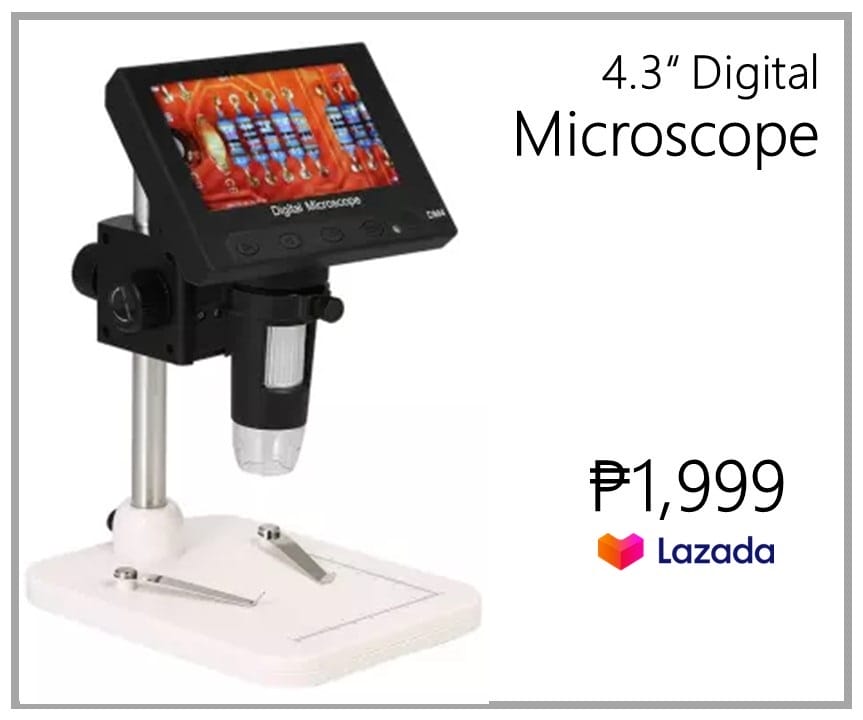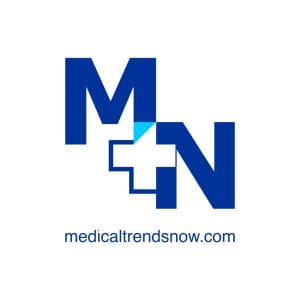Table of Contents
The pharmaceutical industry is constantly evolving, with new drugs and therapies being developed all the time. In this article, we look at some of the Pharmaceutical Industry Trends in 2022.
The pharmaceutical industry is one of the most lucrative and fastest-growing industries in the world. It is expected to grow at a rate of 6.5% from 2016 to 2022, reaching a value of $1.3 trillion. This growth is due to an aging population, the increasing prevalence of chronic diseases, and the advent of innovative therapies.
The industry is also benefiting from a shift toward value-based healthcare, which emphasizes outcomes over procedures.

Here are the Top 21 Pharmaceutical Industry Trends
1. 3D Printing Drugs
In the pharmaceutical industry, 3D printing is being used to print drugs.
This technology is being used to create customized pills that are specific to an individual’s needs. The printer prints the drug by layering different chemicals together.
The printer can also print different doses of a drug, which is beneficial for patients who need a specific dosage.
2. Biologics is one of the Pharmaceutical Industry Trends
Biologics, also known as biopharmaceuticals, are therapeutic agents derived from biological sources. The first biologic, insulin, was discovered in 1921 and has been used to treat diabetes mellitus since then.
Biologics can be made from natural sources, such as proteins or nucleic acids, or they can be synthesized in a laboratory. They are usually administered by injection but can also be given orally.
3. Artificial Intelligence is one of the Pharmaceutical Industry Trends
Artificial intelligence is beginning to play a role in the pharmaceutical industry.
IBM’s Watson is being used to help develop new drugs, and Google’s DeepMind is being used to create predictive models of how patients will respond to medications.
These technologies are still in their early stages, but they could eventually help to speed up the drug development process and improve patient outcomes.
4. Pharmacovigilance is one of the Pharmaceutical Industry Trends
Pharmacovigilance is the science and practice of monitoring the effects of pharmaceutical products after they have been marketed. The main goal of pharmacovigilance is to identify and assess potential drug-related risks, including severe adverse drug reactions (ADRs), and to take appropriate actions to minimize these risks.
Pharmacovigilance is a critical component of the pharmaceutical industry, and it is essential that companies maintain rigorous pharmacovigilance programs to protect patients and ensure the safety of their products.
5. Pharmacogenomics is one of the Pharmaceutical Industry Trends
Pharmacogenomics is the study of how genes affect a person’s response to drugs. This emerging field is already playing a role in the pharmaceutical industry. Pharmacogenomic tests can help doctors choose the best medicine and dose for their patients.
This can lead to more effective treatments and fewer side effects. Pharmacogenomics is also being used to develop new drugs.
6. Digital Pills with Electronic Circuits
What if your medication could tell you when it was about to wear off? What if it could send a warning to your doctor that you needed a refill? What if it could even let you know when it was time to take your next dose?
These are the possibilities posed by digital pills, medications that contain embedded electronic circuits.
The technology has already been used in clinical trials for conditions such as schizophrenia diabetes, and hypertension.
7. Big Data & Analytics in Biotechnology
The use of big data and analytics is rapidly growing in various industries, including biotechnology and pharmaceuticals. The goal of these technologies is to help organizations make more informed decisions by extracting insights from large data sets.
In the pharmaceutical industry, big data and analytics are being used to improve drug discovery and development, as well as to improve the efficiency of clinical trials. By analyzing data from past clinical trials, researchers can identify patterns that may help them to design more successful trials in the future.
8. Modular Manufacturing Flexibility Systems
Pharmaceutical companies are under pressure to bring new drugs to market quickly and cheaply. In order to meet these demands, they are looking for ways to increase manufacturing flexibility. One way to do this is by using modular manufacturing systems.
With modular manufacturing, different parts of the production process can be separated into modules that can be assembled or rearranged as needed. This allows companies to adapt quickly to changes in demand and to move products between factories as required.
9. Natural Language Processing is one of the Pharmaceutical Industry Trends
Pharmaceutical companies have been using natural language processing (NLP) to improve their drug discovery process for many years. NLP is a type of artificial intelligence that allows computers to understand human language.
By understanding the natural language used by scientists, pharmaceutical companies can better understand the research being conducted and identify potential new drug molecules.
NLP can also be used to identify relationships between different pieces of information in scientific papers. This can help pharmaceutical companies to more quickly and easily find new drug targets.
10. In Silico Trials Computer Simulation
In silico trials or computer simulations in the Pharmaceutical industry are a valuable asset to researchers. They allow for the study of potential drugs without the need for extensive and expensive testing on animals and humans.
In silico trials can be used to identify the most promising drug candidates and to optimize their properties prior to expensive in vivo trials. By reducing the number of potentially harmful compounds that reach in vivo trials, in silico trials can also save time and money.
11. Precision Medicine is one of the Pharmaceutical Industry Trends
Precision medicine is an approach to disease treatment and prevention that takes into account individual variability in genes, environment, and lifestyle. The goal of precision medicine is to optimize treatment for each patient by using information about that person’s genes, environment, and lifestyle.
Precision medicine has the potential to improve the accuracy of drug dosing, help doctors select the best drug for each patient, and identify patients who are likely to respond poorly to a particular medicine.
12. Telemedicine and Remote-Working
Telemedicine and remote-working are becoming increasingly popular in the Pharmaceutical industry. This is primarily due to the fact that CNBC’s they offer many advantages over traditional methods of working.
For example, telemedicine allows doctors to provide consultations and treatments to patients remotely, which can be especially beneficial in rural areas where there is a shortage of healthcare professionals.
13. Blockchain
Blockchain technology is being used in many industries to increase transparency and trust. The pharmaceutical industry is looking to blockchain technology as one of the pharmaceutical industry trends to improve the production of drugs.
One benefit of blockchain technology is that it can create a tamper-proof record of transactions. This could be used to ensure that the drugs produced are safe and have not been tampered with.
Another benefit of blockchain technology is that it can help to speed up the process of drug development.
14. Extended Reality
As technology advances, new and innovative ways of using technology emerge. One such way is extended reality, which is a combination of virtual and augmented reality. Extended reality is one of the pharmaceutical industry trends and has many potential applications, including manufacturing, distribution, and retail of products.
In the pharmaceutical industry, the extended reality could be used to improve the quality of drugs and to make the drug development process more efficient. Additionally, the extended reality could be used to educate patients about their medications and to help them comply with their treatment plans.
15. Virtual Reality Against Painkillers
Pharmaceutical companies are searching for new ways to reduce pain, as the use of painkillers has become a significant issue in society. One potential solution is virtual reality.
Virtual reality is one of the pharmaceutical industry trends and can be used to create an immersive experience that distracts from the pain. This can be done by providing a different focus or sensation that blocks out or distracts from the pain.
16. Real-world-evidence (RWE)
Real-world-evidence (RWE) is a term used in the pharmaceutical industry to describe data collected from sources outside of traditional clinical trials. RWE can include information from patients’ electronic health records, insurance claims data, and other types of big data.
RWE is one of the pharmaceutical industry trends and becoming an increasingly important source of information for drug companies, as it can help them to evaluate the safety and efficacy of their products after they are released into the market.
17. Digital Therapeutics
In the pharmaceutical industry, digital therapeutics are being used to treat various diseases. Digital therapeutics are medicines that are delivered through digital devices, such as smartphones and computers.
They are used to treat a variety of diseases, including mental health disorders, heart disease, and diabetes. Digital therapeutics is one of the pharmaceutical industry trends that have shown to be effective in treating these diseases.
18. Deep Learning
Deep learning is a computer algorithm that is able to learn from data and make predictions. It is a subfield of machine learning and has been shown to be very effective in areas such as image recognition and natural language processing.
In recent years, deep learning has begun to be used in the pharmaceutical industry, with promising results. Deep learning is one of the pharmaceutical industry trends that can be used to predict how a patient will respond to a particular drug, identify new drug targets, and to develop more effective treatments.
19. Curative Therapies
Curative therapies are treatments that are meant to cure a disease or medical condition. The pharmaceutical industry is constantly working on new curative therapies, and many of these therapies are now being approved for use by the FDA.
Some of the most promising pharmaceutical industry trends in curative therapies include new cancer treatments and treatments for rare diseases.
20. Cybersecurity
Cybersecurity is a top concern for the pharmaceutical industry. Hackers are constantly trying to infiltrate the networks of pharmaceutical companies to steal sensitive information or sabotage operations.
As a result, pharmaceutical companies must take steps to protect their networks and data. This is one of the pharmaceutical industry Trends in pharma security. One way to do this is by using cybersecurity tools and protocols. Cybersecurity tools can help companies detect and prevent cyberattacks, while cybersecurity protocols can help companies create a culture of security awareness.
21. Augmented Reality Drug Descriptions
Pharmaceutical and biotech companies are among the most innovative users of augmented reality (AR) technology, thanks to the potential it offers for improving drug development, manufacturing, and commercialization processes.
One of the pharmaceutical industry Trends where AR is making a significant impact is in the way drugs are described to sales representatives and other health care professionals. Traditionally, labels on drug packaging provide all the information needed to identify and understand a product.
Conclusion: 2022 Pharmaceutical Industry Trends
In this day and age, the pharmaceutical industry is constantly changing and evolving. In order to keep up with the latest trends and technologies, it is essential for pharmaceutical companies to stay up-to-date on the latest advancements.
In this article, we have outlined some of the latest trends in the pharmaceutical industry. We have discussed how companies are using new technologies and their manufacturing processes to improve their products and services and explained some of the challenges that the industry is currently facing.













